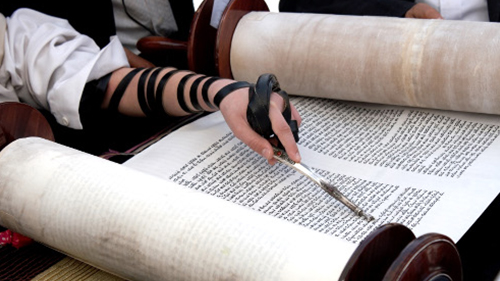December 2012, Rosh Chodesh, the Kotel. It’s the moment the policewoman pulls me aside because I am wearing my tallis. I say to her, “This must be incredibly hard for you to do.” (She looks back at me puzzled). Many hours later, after being interrogated and finally released from the Old City police station, concerned friends ask, “Were you afraid?” I was not. Since then, I’ve thought a good deal about what makes me afraid – and what does not.
The Torah portion this week is called Lech lecha, which, loosely translated, means get going! God commands Abram to leave his birthplace and go to a new land that God will show him. In the first three verses of this portion, (Genesis 12:1-3) the word bracha, meaning blessing, appears five times.
I write this davar Torah about Noah and the Flood surrounded by a healthy dose of irony. Currently my local community and my state of South Carolina await the forthcoming chaos that Hurricane Florence will bring to our region. This is the third Hurricane in two years in which many like myself have had to endure by evacuating from our homes, waiting for the Flood to end and anticipating the aftermath of the Hurricane’s damage to our property and our community’s spirit.
Beresheet begins our Torah-reading cycle anew. Once again, we turn the scroll over and read our people’s origin story; a mythological history that speaks to the wonder our ancestors saw when they looked at the ever-changing world around them. This parshah tells the story of how God created the world, and everything in it, through the power of God’s speech. The Torah then tells the early stories of humanity; of Adam and Eve, Cain and his brother Abel, and introduces us to Noah, whose actions will help renew Creation in next week’s reading.
For the last number of years, the summer edition of our synagogue magazine has focused on the Jewish travel experiences of our members. As well as boasting as a member, Cathy Winston, the travel editor for the British Jewish Chronicle, congregants wrote about Crete and Corfu, Dubrovnik and Copenhagen and the Judah Hyam synagogue in New Delhi. Numbers 33, the opening chapter of the sidrah, Mase’ei reads like a travel itinerary, the stages of the Israelites wanderings in the wilderness.
Parshat Balak was the Torah portion read on my first Shabbat as rabbi of the congregation I would go on to serve for 35 years. I observed then that there must be something instructive — and maybe cautionary — to be gleaned from the coincidence of assuming this new pulpit on the Shabbat when we read a Torah portion that prominently features a talking ass. My new congregation laughed – with me rather than at me, thankfully. But the truth is, that among the insights found in this complicated Torah portion, is this: what we say reveals a great deal about who we are.
In this week’s Torah portion, Chukkat, we read: “The community was without water and they joined against Moses and Aaron”. This reaction from the community is not a big surprise. After Miriam’s death earlier in the chapter, finding water became one of the greatest concerns for the people of Israel.
“And the LORD said unto Aaron: ‘Thou shalt have no inheritance in their land, neither shalt thou have any portion among them; I am thy portion and thine inheritance among the children of Israel.” — Numbers 18:20
You are set aside, for a special purpose and destiny. Your “portion” now and forever more shall be the Eternal. Which really means your portion is 100 percent rooted in your faith that God and the people will care for you and your family.
Twelve men, representative from each tribe, have been sent to reconnoitre the land of Israel, and they come back with the same report but with two different conclusions. The land is very good and fertile, but the inhabitants are strong. Ten believe that it would be impossible to take the land and it is better not to try, two insist that trusting in God and refusal to be afraid will mean that they will indeed succeed.
Finding good leaders for our congregations is an ongoing challenge, one that exists whether you are in Alaska or New Zealand. This week’s portion offers us guidance in finding the right leaders, in the story of two very minor characters.


